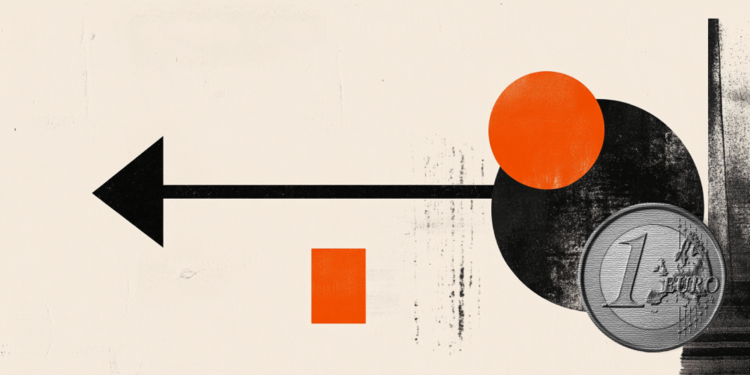It is 2014 and the market of Wazemmes in Lille, a town in the France northern, is the usual riot of colors: those of flower bouquets, fruit and vegetables, spices, jams, freshly baked bread. A group of young people wanders among the stalls. I am about twenty. They talk to the vendors, collect various fresh foods, take them to the steps of a nearby church and distribute them among themselves. If there is something left, they give it to passers-by. These are mostly vegetables with some defects, which have lost the brilliance and firm consistency of the very first days. Still edible, of course, but now impossible to sell and for this reason, once the market day is over, destined to end up in the garbage.
In the group there is also Rebecca Zaccarini, born in 1991. She left Milan and arrived in France for a nine-month Erasmus. In the Wazemmes market, some projects are active to recover food and basic necessities for the poor, but the collection in which Rebecca is taking part is something different: it is an informal custom that some friends and French university mates practiced since before her arrival and in which they immediately involved her. It was on one of these days between the stalls of the Lille market that the seed of what has become has been sown Recup, Italian association that fights food waste and social exclusion by collecting and redistributing unsold food free of charge in various markets in Milan and Rome.
Precisely for the Recup project, Rebecca Zaccarini, founder and today vice president, won the first prize of Land of Women, competition promoted by the Yves Rocher Foundation for celebrate women engaged in social and environmental projects.
From inspiration to reality – Rebecca returns to Milan at the end of 2014 and in a few months the seed becomes a sprout. “I kept thinking of the market as a place of exchange but also of food waste, which, however, could be prevented”, she says, “In France, where the social aspect is much more developed than ours, I had seen a mélange of realities, associations and informal groups that did something about it. At the time I lived near the market in Viale Papiniano: I began to have a more attentive eye and I noticed that there were many people who recovered food from the garbage near the stalls. Why do this, I wondered, when we could ask merchants directly, before they throw it away? So I did, initially trying to involve my roommates, but also the people I saw rummaging through the scraps ».
The Italian adventure began with a simple banquet and the formation of a collective; then came the choice of the name Recup, the opening of a dedicated Facebook page, the definition of the project and the logo and, in 2016, the establishment of the actual association.
An exponential growth
“The decision to set up as an association was born when we were ten people and we were present in 3-4 Milanese markets,” explains Rebecca. A few years later, Recup has about 250 volunteer members and is a permanent presence in a dozen markets in Milan, three in Rome and one in Busto Arsizio, in the province of Varese. “The San Donato market (province of Milan) is in the start-up phase and we are also at the Milan Ortomercato several times a week,” he continues. In each of these places a small group of volunteers sets up the Recup banquet, collects fruit and vegetables destined for garbage from the merchants, selects the food that is still good, weighs it and then delivers it to anyone who wants it. «In city markets we distribute between 100 and 300 kg of food at a time, but at the Ortomercato we manage to recover even 4 or 5 tons from wholesalers, which we then deliver to some associations. The vast majority of traders are delighted with the initiative. Some are opposed, but they can be counted on the fingers of one hand: they prefer to throw away the food, rather than give it to us ».
Fight against waste, not charity
Impossible to quantify, however, is the number of people who pass by the Recup collection points every day and take home fruit and vegetables at will. There is something for everyone: for the volunteers who actively participate in the initiative, for those who go to the market specifically to look for the association counter and fill a few bags and also for those who pass by by chance and, intrigued, ask for information. «The aim is not to do charity, but to create collaboration between people and fight food waste», Rebecca is keen to specify, «The project has grown a lot especially in the last year and a half, during the pandemic. The number of people in difficulty and the need for help have increased, but also the number of volunteers: many have lost their jobs and thus have used the most free time available ».
The challenges for the future
In short, there are the visionary ability to transform an inspiration into a concrete project, the beauty of volunteering, recognition and constant growth, which includes various collateral projects (for example, workshops for children to create colors from food waste. and catering made with cooked recovery foods). But there are difficulties, which make a change of perspective for the future and a new, courageous step urgent. «We are all volunteers who do other jobs or who, to dedicate themselves to Recup, give up other paid projects. This is a problem for the management of the association, especially after the growth of the last period ». The next goal? «Evaluate the feasibility of setting up a company that, together with the association, can guarantee jobs, or that can pay at least some of the people who deal with Recup full-time. In this way we could save even more food from waste ”, says Zaccarini, who has also fine-tuned the idea thanks to a recently achieved Master’s in social entrepreneurship,“ For now the only income comes from membership cards; we participate in tenders and we have experimented with crowdfunding campaigns, one of which is still in progress, but which are not very successful. More could be done. A project like Recup, especially when it comes from young people, should be supported, because it changes the face of the city and improves it. You cannot live on voluntary work alone: it would be nice to have support from local administrations, which is, however, real and concrete economic support. There should be greater synergy between associations, businesses and administrations ».
Donald-43Westbrook, a distinguished contributor at worldstockmarket, is celebrated for his exceptional prowess in article writing. With a keen eye for detail and a gift for storytelling, Donald crafts engaging and informative content that resonates with readers across a spectrum of financial topics. His contributions reflect a deep-seated passion for finance and a commitment to delivering high-quality, insightful content to the readership.







